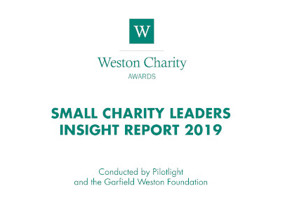The Lloyds Bank Foundation for England and Wales has relaunched its grants programme “with a simpler, more flexible and transparent approach”.
Core funding grants worth up to £100,000 are available for small and local charities. Those eligible are charities with an income between £25,000 and £1m across England and Wales that are tackling “complex social issues”.
Charities can check eligibility and apply for grants online through the Foundation's website.
Depending on factors such as specific local needs, the website will advise a charity whether they are eligible to apply and, if they are, whether they can apply for £45,000 or £100,000. Criteria will be reviewed and updated every six months.
The Foundation said it would make around 170 new grants in 2020 to small and local charities – half of them up to £45,000, half up to £100,000, awarding £12m in total. In addition, it will provide a range of organisational development support to charities, invest in national programmes to influence policy and practice, and run the matched-giving scheme for staff of Lloyds Banking Group.
The Foundation said that “like any funder there is a limit to the money available”, and therefore it wants “to be open and transparent” by being clear in advance which charities are more likely to be funded, so that charities can make best use of their time.
The new approach
The Foundation says that it will help small charities through long-term funding and developmental support. Changes to the Foundation’s grantmaking processes are part of its Reaching Further strategy for 2018-2022.
Small and medium-sized charities make up 96 per cent of the charity sector, yet attract only 18 per cent of the sector’s total income, according to the UK Civil Society Almanac 2019.
But the Foundation notes that “the pressures facing many small charities supporting the hardest to reach people in their local communities are greater than ever”.
It says it has “refined” and improved its approach to funding to become more effective. This new approach involves:
- A continuously open application process, rather than in rounds, so that charities can apply for support whenever they are ready.
- Clearer turnaround times for when a decision on funding will be made from the initial application.
- Grants worth up to £45,000 and £100,000 available over three years (with the possibility of continuing to six years) that can be used entirely for core costs, with charities able to flex how much they spend each year.
- A simplified approach to reporting whereby charities can share existing reports they already produce, rather than having to complete bespoke reports for the Foundation, ensuring charities maintain accountability to their boards and not the foundation.
- Support from the Foundation’s regional managers and access to the Foundation’s ‘Enhance’ organisational development programme, helping charities to become more resilient and sustainable.
‘Small charities are undervalued and under more pressure than ever’
Harriet Stranks, director of grants at the foundation, said: “Small charities are undervalued and under more pressure than ever, but they are reaching people and communities that big charities and organisations simply can’t. That’s why I’m delighted our new approach to grant-making, developed alongside the charities we work with, will aim to make the process even easier to navigate, more transparent and led by the needs of the applicant.
“Our ambition is to support small and medium-sized charities over the longer term. This gives the charities we partner with greater flexibility over how they use those resources, allows them to build an in-depth relationship with us and take advantage of the wide range of development support we offer including training, consultancy and mentoring.”
|
Related Articles












